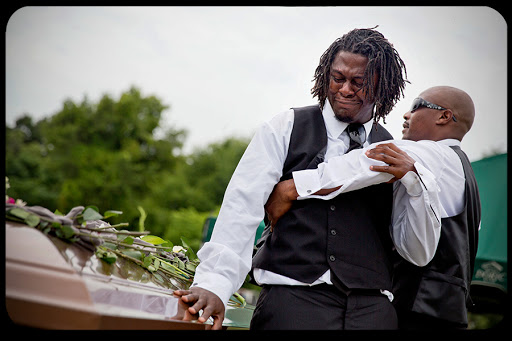Everyone has heard the stories by now: How relatives of the nine victims gunned down by 21 year-old Dylann Roof at Emanuel African Methodist Episcopal Church in downtown Charleston, NC, appeared at Roof’s bond hearing and spoke words of forgiveness and mercy to him.
It’s not the first time we’ve seen this kind of response by devastated family members in the face of unimaginable loss.
When Charles Roberts, a 32 year-old milk truck driver, walked into an Amish school house in October 2006 and shot 10 Amish girls, killing five before killing himself, the Amish community responded similarly. Rather than cast blame or point fingers, they reached out to the killer’s family. The very afternoon of the shooting, one of victim’s grandfathers publicly expressed forgiveness and others went to comfort the Roberts family.
The forgiveness extended by the Amish community, particularly the family members, not only surprised journalists who showed up to cover the story, but changed the life of Robert’s mother, Terri Roberts. Because of the mercy extended to her, CBS news reported in 2013 that she made it her mission to share the same message with other trauma victims, and that once a week she was caring for the most seriously wounded survivor of the shooting, now a teenager.
Though it can be hard to grasp after such atrocities, forgiveness is central to Christianity—recall Jesus’ words in Matthew 18:22 when he tells Peter that he must forgive "seventy times seven times"—in other words, there should be no end to who and how often we forgive.
Forgiveness frees and changes people. It can profoundly affect both the victim and the perpetrator, and paves the way for healing, reconciliation, and even cultural change over time.
Dr. Greg Popcak, a Catholic psychologist at CatholicCounselors.com, says forgiveness is always the first step in healing for a person who’s been wronged.
"St. Augustine said that forgiveness simply requires us to surrender our desire for revenge—at the point that we stop wanting to hurt someone for having hurt us, we have, in fact forgiven them." says Popcak. "Reconciliation is the next step in the process, where the injuries to the relationship are healed and the relationship is restored, but that’s secondary to simple forgiveness." says Popcak.
As Popcak points out, research shows that people who cultivate forgiving hearts are both emotionally and physically healthier than those who are prone to carry grudges.
"The stress that accompanies nursing an emotional wound sets us up for a host of emotional problems, and even physical ailments. Forgiveness is a gift that we can give ourselves even when the other person hasn’t asked for it."
In the aftermath of the Charleston tragedy, social media was buzzing with people disapproving of granting forgiveness too soon to Dylan Roof. For some, it detracted from the seriousness of the crime, the need for justice, and the underlying problems that need to be discussed and addressed. Perhaps what bothered them, however, was the perception of what may be called "cheap forgiveness."
"Cheap forgiveness," says Popcak "is the attempt to cover over the offense and pretend that a wound is healed when it is, as best, scabbed over."
Forgiveness can be a process, just as grief is, and may need to be revisited over time. Real forgiveness doesn’t negate righteous anger, sadness, the need for justice, the work of reconciliation, and the importance of addressing serious societal problems. It can however, pave the way for all of this by disposing hearts to deeper healing, understanding, and grace. Real forgiveness has a way of spreading and changing people’s orientation towards life. Reflecting on her experience of being forgiven by Amish family members, Terri Roberts said:
"For the mother and father who had lost not just one but two daughters at the hand of our son, to come up and be the first ones to greet us—wow. Is there anything in this life that we should not forgive?”
Zoe Romanowsky is lifestyle editor for Aleteia English.

